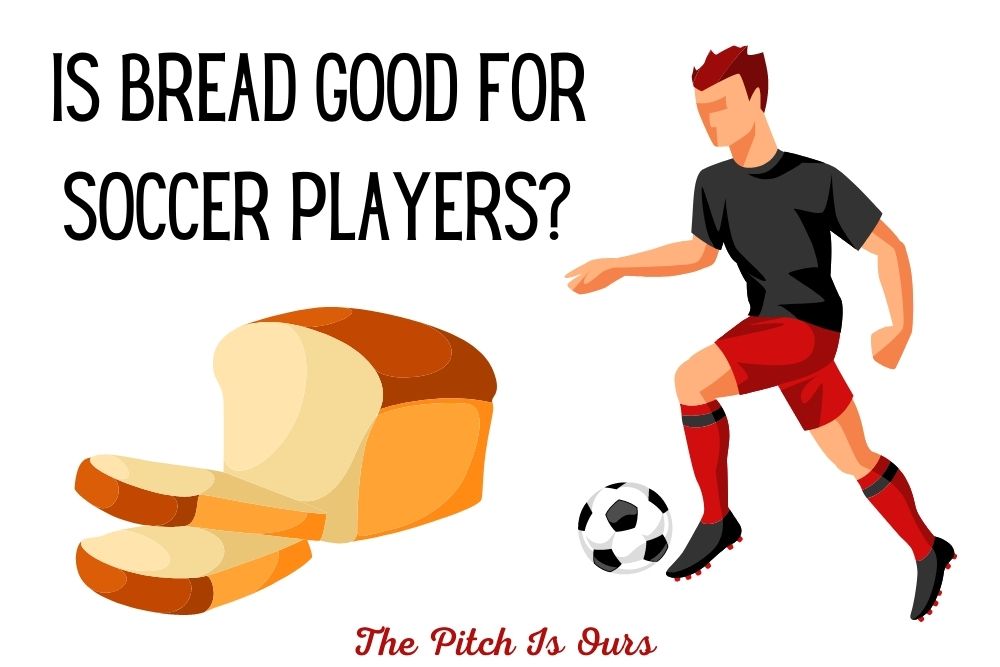Outside their sport, one of the most important subject matters for most professional athletes is nutrition. Can we blame them? Since obesity and high performance seem to be an unending parallel line, nutrition has become the holy grail of sports athletes.
For a sport like soccer, this still stands true. There was very little evidence that nutrition and diet had any influence on the performance of soccer players on the pitch.
According to people like Armando Vinci (renowned sports scientist), a player’s nutrition has a direct reflection on significant things such as endurance levels and similarly mundane things like sleep patterns.
Soccer as an intense sport, irrespective of its variants, needs high energy nutrition to keep up. For instance, in association football, most players are expected to run around the pitch and maintain optimum performance levels throughout the 90-minute game.
To achieve this, they have to intentionally and consciously maintain an energy-sustaining diet.
So, what’s so different about today’s soccer compared to its past that makes nutrition a notable topic?
Well, the intensity of play and game schedules in the past is nothing compared to what is obtainable now.
Bread, one of the main sources of carbohydrates, is a staple food for most people worldwide. Unfortunately, it is infamous for its carbs and is popularly regarded as a major cause of weight gain.
This article examines the importance of bread to soccer players, if any. It also looks at its benefits and if it can help improve soccer players’ performances.
Quick Navigation
Is bread good for soccer players?
Yes, it is! Among all the essential nutrients in food, carbohydrates rank the highest as the most needed nutrient (for its energy-producing abilities) by soccer players. So can you guess what nutrient bread is a source of? That’s right, carbohydrates!
Before we all get sentimental on this, especially since bread is quite a touchy subject for fitness experts and nutritionists, it’s best we understand the daily nutrient requirements of professional soccer players.
For every kilogram of body weight, it’s been estimated that soccer players require as high as 7g of carbohydrates during match days. Conversely, on non-match days or what’s popularly now referred to as recovery days in sports, carbohydrates requirement drops to as low as 3g.
In other words, eating bread becomes a question of meeting daily energy needs rather than total vilification of the act. Bread comprises the more nutritionally loaded whole grain bread to the processed white bread.
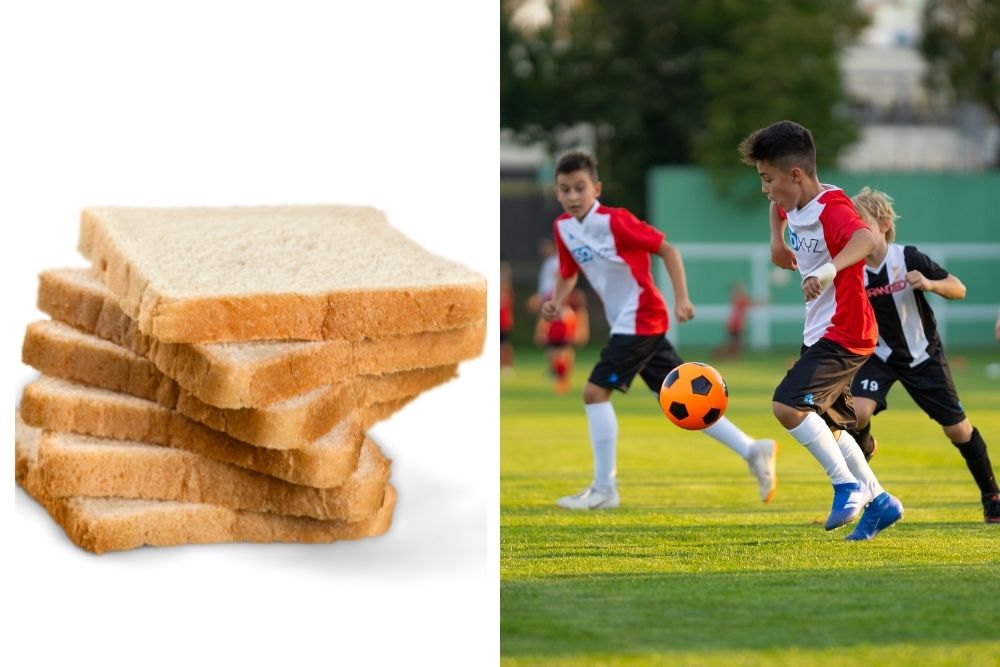
Although whole-grain bread is preferred because of its more nutritional value, white bread also has its nutritional value, albeit small. This is understandable since it’s a common characteristic of processed foods.
More often than not, no one eats bread alone or in isolation from other food nutrients. Therefore, the entire daily diet of the player should be considered first before examining if bread is a good addition or not. As with everything in life, moderation is key.
As a soccer player, you need lots of muscle fuel (glycogen). You also need lots of water and fluid to avoid dehydration. Apart from dehydration, depleting muscle glycogen is a serious cause of fatigue and low endurance levels in soccer.
Bread, as a carbohydrate, stores its starch as glycogen in the muscles. Does this mean eating bread will only feed the muscles and not make you fat?
First, it’s already an established fact that eating bread won’t make you fat. However, what is guaranteed is that, like any other food, excessive eating of bread can make you fat. It is the lack of control in eating any food that causes humans to add weight.
What are the benefits of eating bread for soccer players?
Bread contains both macro and micronutrients that can be beneficial to the human body. It is a good carb supply to the body when ingested and digested. Here are some of the other benefits of eating bread.
1. Rich source of fiber
Depending on the type of bread, it can be a good source of fiber when eaten. The less processed types like whole-wheat bread have a higher fiber content than processed white bread.
Dietary fiber is helpful to the health of the digestive system. For soccer players, this helps prevent the discomfort of constipation.
Fiber can also be regarded as fuller. This means it can make you eat less quantity and give you a full feeling. This can help significantly if you’re trying to maintain a good weight in soccer.
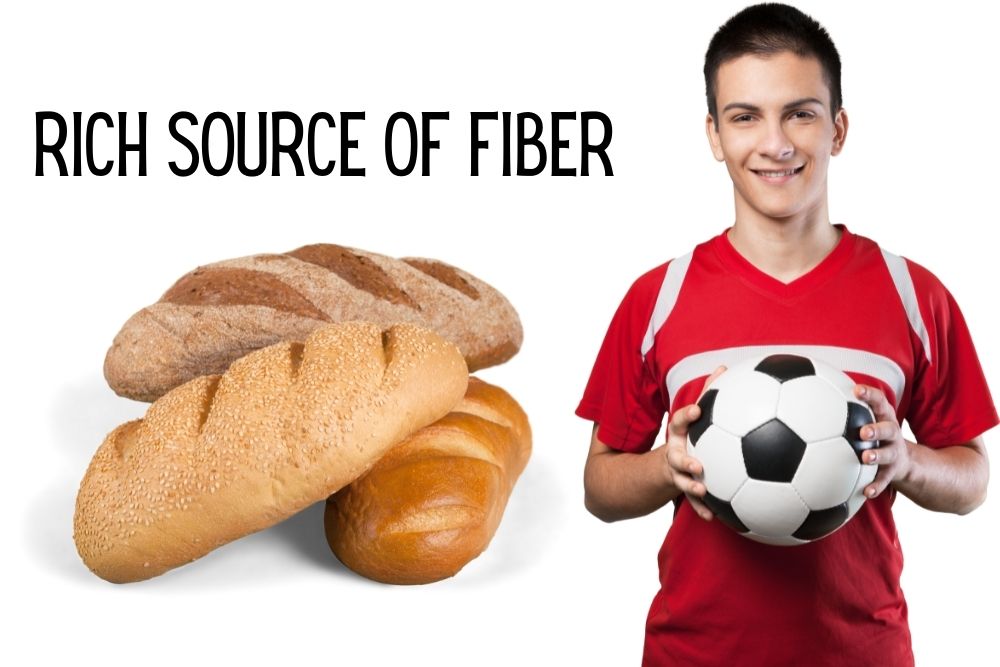
2. Source of energy
As a soccer player, your energy level demands are constantly high during gameplay. This is why soccer players have a diet that’s predominantly carbohydrates.
Rich in starch, whole-grain bread falls into the complex carbohydrates category, which is good for the body. It also has a good amount of calories that can be used to produce energy for the player.
Since energy is derived from muscle fuels (starch stored as glycogen), whole grain bread becomes a good energy source for soccer players.
3. Fat content
Bread is generally low on fat. It contains between 0.6g to 2g of fat in different types of bread.

4. Magnesium
It is an important macronutrient that aids energy metabolism and prevents muscle cramping. As a result, it helps the body recover faster after intense training and games and also helps improve the player’s sleep.
5. Essential micronutrients
Bread contains several essential nutrients that are useful to the body. However, during bread processing, some of these micronutrients are lost. This is because most of these micronutrients are located on the outer layer of the grains.
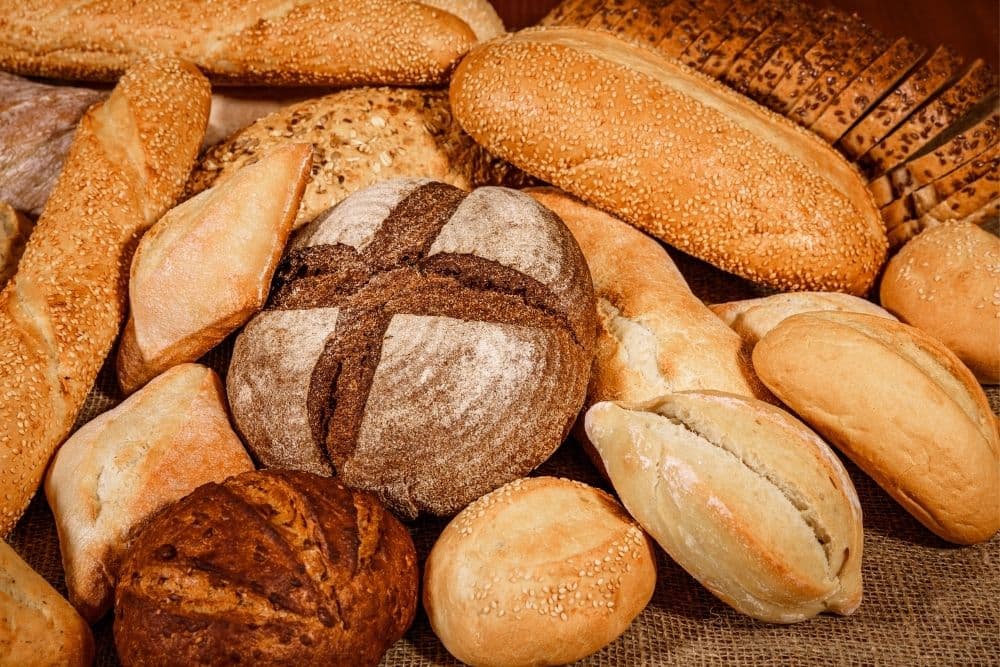
However, to make up for this deficit, bread manufacturers add these deficient micronutrients to processed bread. These beneficial micronutrients include:
Iron
As an essential element in blood production, most of the body’s iron is found in the red blood cells.
The blood acts as a conduit in moving the lung’s oxygen to the body muscles. The combined work of the iron-powered myoglobin in the muscles helps soccer players produce energy aerobically.
Iron deficiency will lead to fatigue because oxygen will not circulate properly around the body. Therefore, Bread becomes an excellent way to meet your daily iron requirements in combination with other food items.
Sodium
It is an essential nutrient involved in muscle contractions. Muscle cramping is common among athletes and can be excruciatingly painful.
For a sport like soccer. with most of its variants played outside, cramping can occur more often due to excessive sweating. With drops in sodium levels in the muscles, proper contractions cannot occur, leading to muscle cramps.
Manganese
As a micronutrient, it helps in both carbohydrates and fat metabolism, blood sugar regulation, bones, and brain functions.
Folate
It is an essential micronutrient for cell growth and the formation of red blood cells. It is also known as Vitamin B9.
Is it good to eat bread before a soccer game?
Taking carbohydrates before a soccer game can help boost the muscle’s glycogen reserves. You’ll need lots of energy to sustain yourself as you run around the field.
However, irrespective of the meal taken, it must be eaten at least three hours before the start of the game. This is to avoid stomach discomfort. High fiber and fatty foods are the usual culprits here.
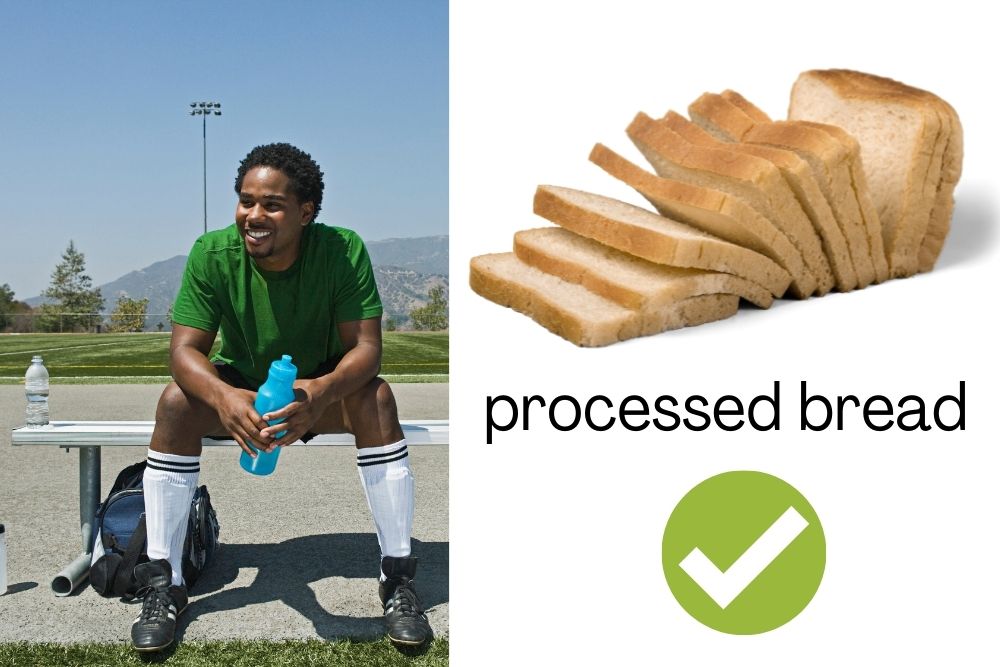
While bread has most of the needed macro and micronutrients by soccer players, it has a varying amount of fiber. For example, white bread has far less fiber content and fat than whole grain bread.
Thus, white bread or processed bread can be eaten at least three hours before the game. Whole grain bread should be avoided or eaten at least 12 hours before the game.
So to answer the question, yes, it is good to eat bread before the game. Just ensure it is processed bread and not whole grain bread.
Conclusion
Bread is an excellent source of needed carbohydrates by soccer players. The idea that bread consumption causes weight gain is a myth.
Like all other foods, excessive consumption can lead to weight gain. However, for soccer players with a constant demand for energy on the pitch, bread is a good addition to the diet.
There are a lot of targeted benefits soccer players can get from eating bread. To ensure they maintain a healthy diet and get the daily nutrient requirements, bread should be eaten with other high nutrient-loaded foods.
With less fiber and fat, white bread can be eaten 3 hours before a game. It wouldn’t cause discomfort and will provide the necessary muscle glycogen needed on the field.
However, whole grain bread has higher fiber content and fat. Therefore, it should not be eaten before a soccer game.
Just as players are advised to avoid flatulence-causing fruits and vegetables, whole grain bread should be avoided if games are scheduled in the morning or early afternoons.
Hi there, I’m Jay.
Soccer is everything in my life! My friends and I have created this blog with all our enthusiasm, passion, and understanding after years of playing pro soccer. Hope you will enjoy it!
